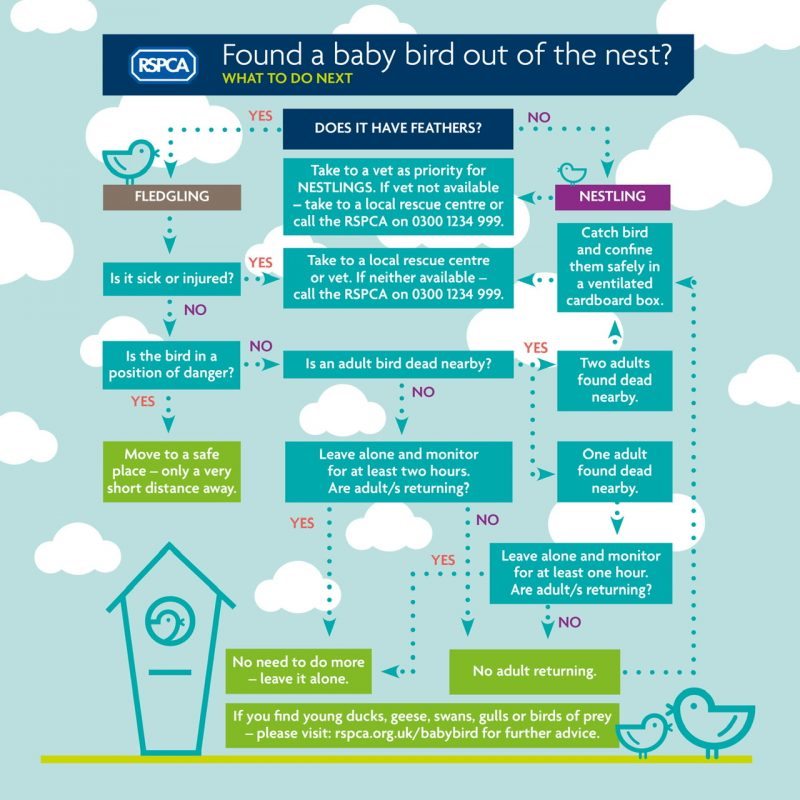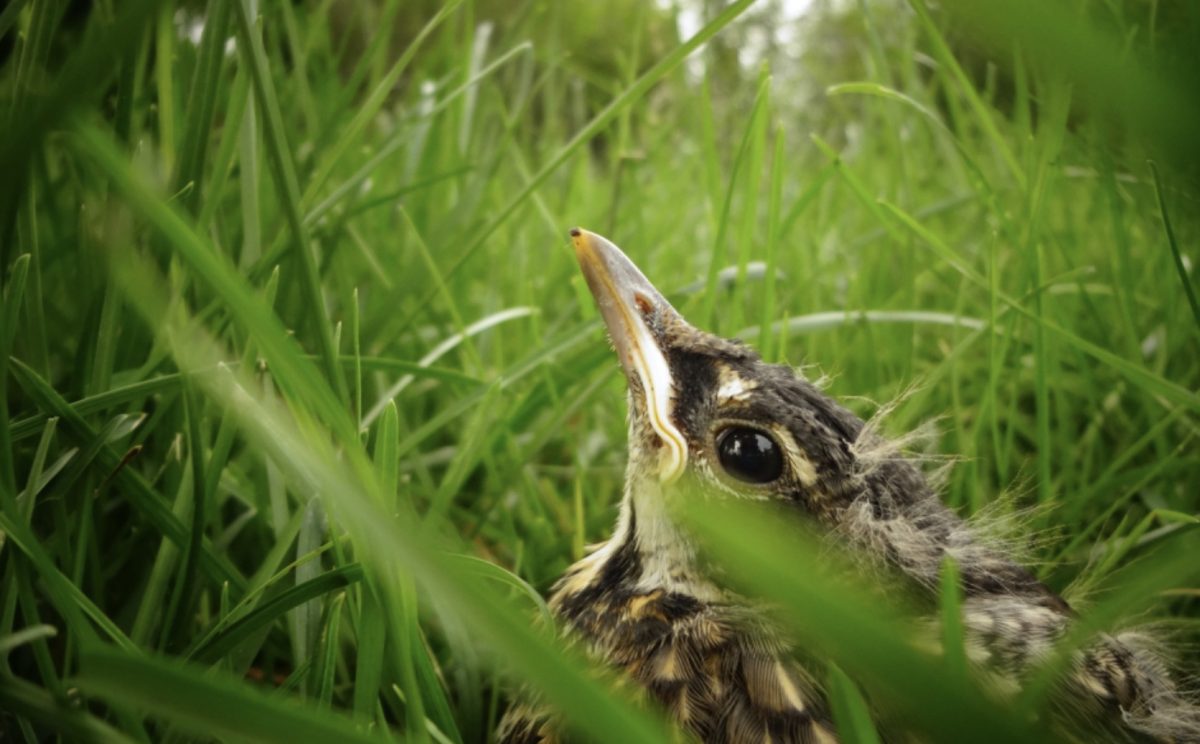Young wildlife…not as vulnerable as you think
As we mentioned last week, nature is thriving during our lockdown. It is at this time of year when a lot of wild animals give birth and birds nest. The lack of human interference, albeit well intentioned, has wildlife flourishing. Fledglings particularly can be subject to unnecessary rescue! Nestlings however, often do need help. A nestling is completely bald or perhaps has feathers ‘in pin’ showing and has usually fallen from a nest or been predated and dropped. They are helpless and sadly don’t have a high chance of survival.
A fledgling on the other hand has most, if not all of its feathers. The crucial difference is that fledglings can and do live on the ground when they haven’t fully mastered flight. This is sometimes misconstrued as injury. Some jump from the nest or are jostled out when they are not quite ready to fly with ease. All of this is normal development for a young bird finding their wings! Parents will come and feed their baby if there is no one around and to a certain extent they will defend their young. However, they won’t jeopardise the rest of their brood if they feel threatened.
What should you do if you find a young bird?
Firstly, establish whether the bird is injured. If there is blood, feather loss from a predator or an obvious limp then the bird is probably injured. If possible, put the bird in a box with air holes, some shredded paper and place somewhere quiet. Ring a local vet for advice or 0300 1234 999. Due to COVID19 collection of wildlife is subject to different procedures. The same advice applies to nestlings. Don’t try to feed the bird as this can lead to further complications.
If the fledgling is not injured, we advise observing from a safe distance. You may find the bird will be fed by it’s parents who can care for their young better than any rescue. If, after a couple of hours there has been no intervention from an adult bird, then the fledgling may be orphaned. It can be difficult to walk away from a seemingly helpless, vulnerable young bird, especially if you suspect predators. However, they stand a better chance of survival being left in their own environment.
There is more information available at RSPCA England and Wales.


